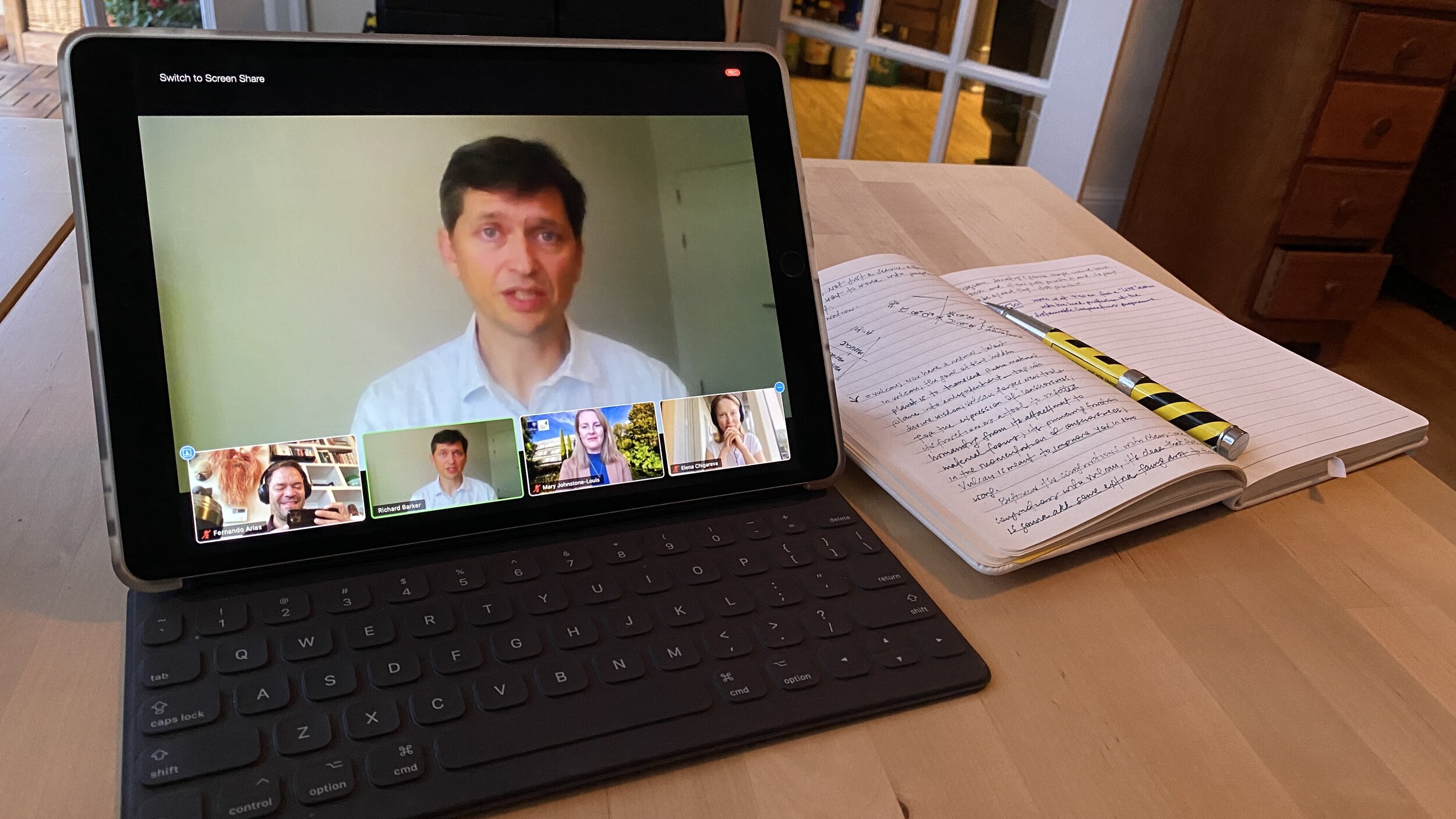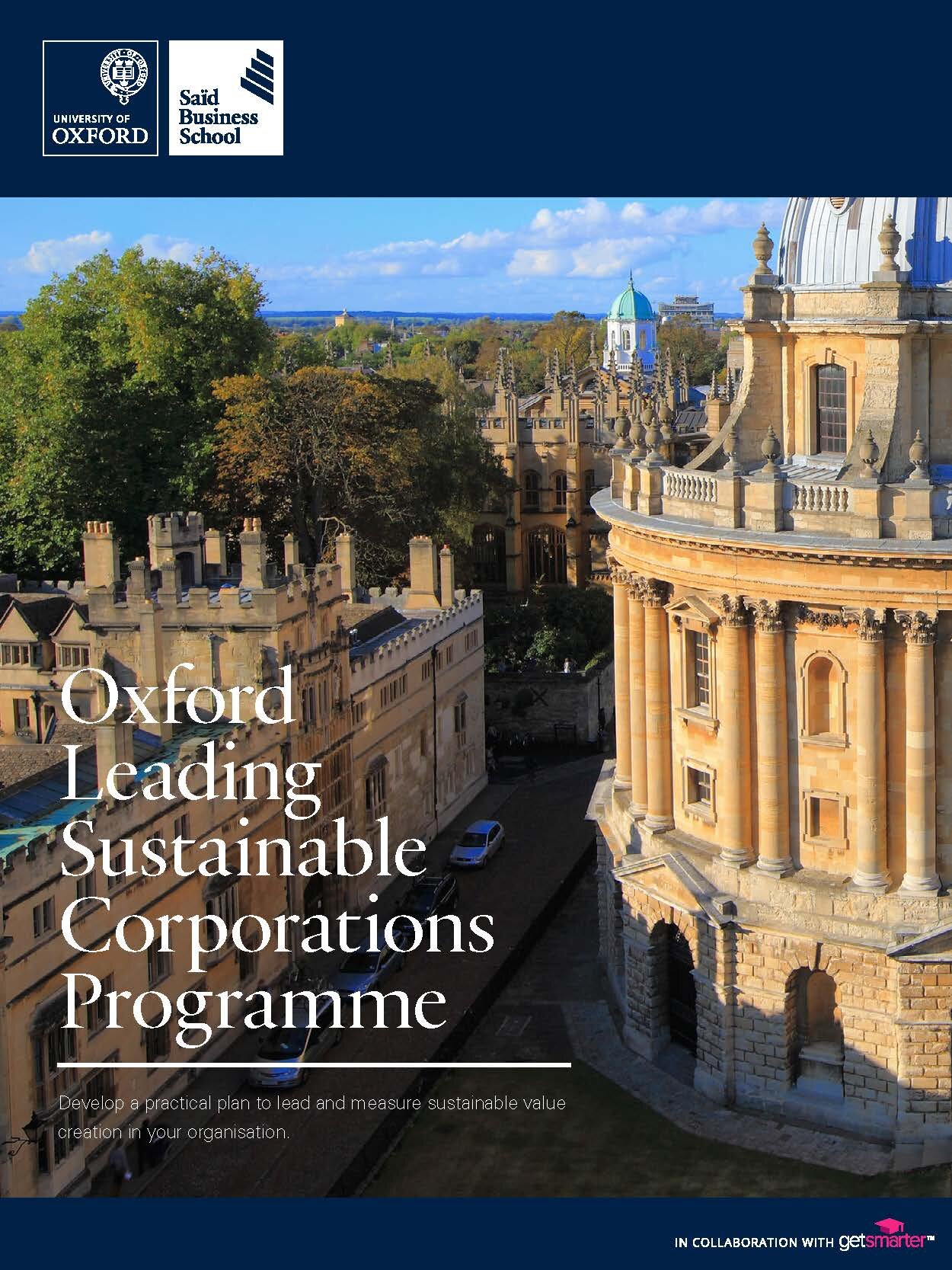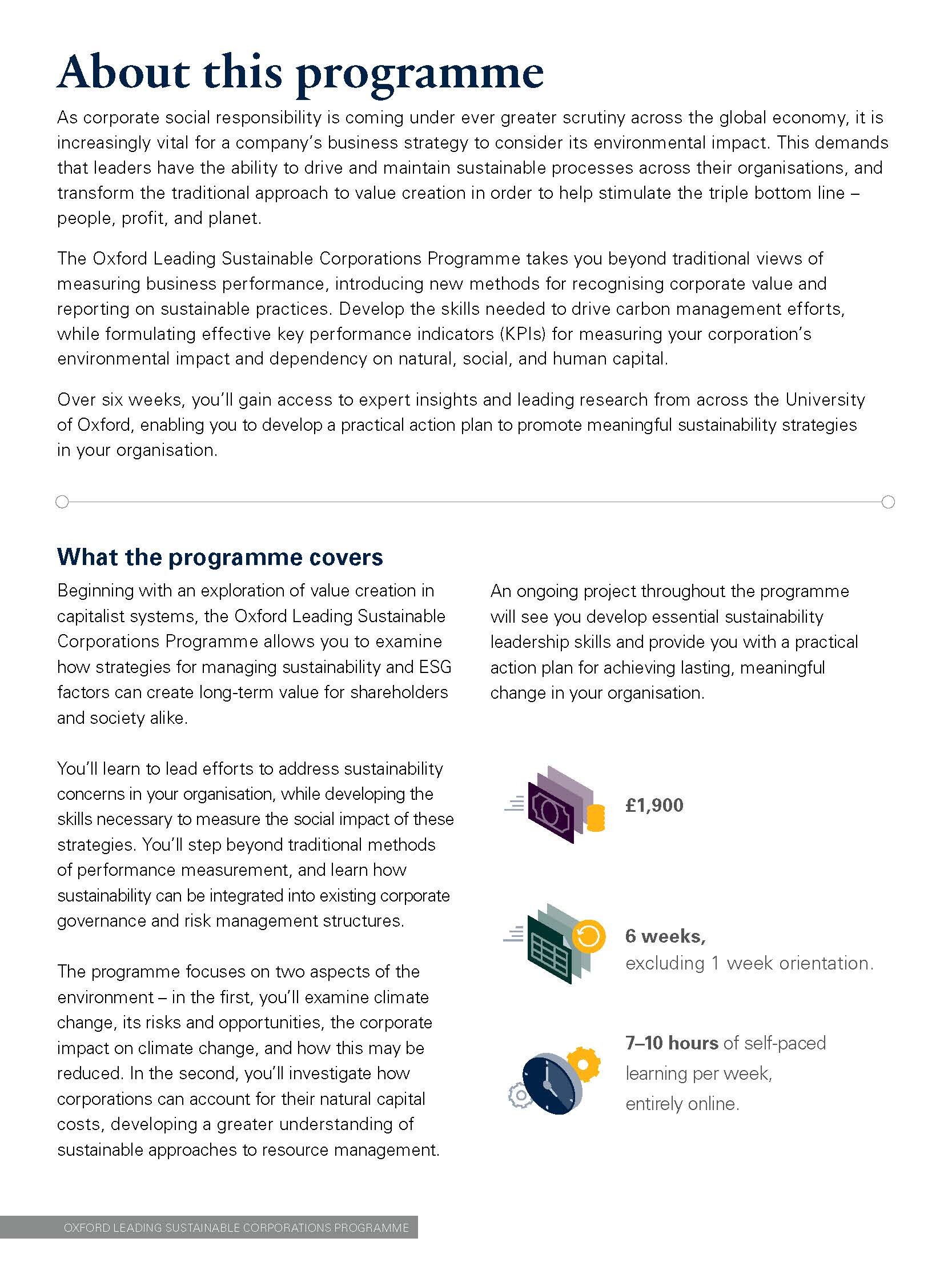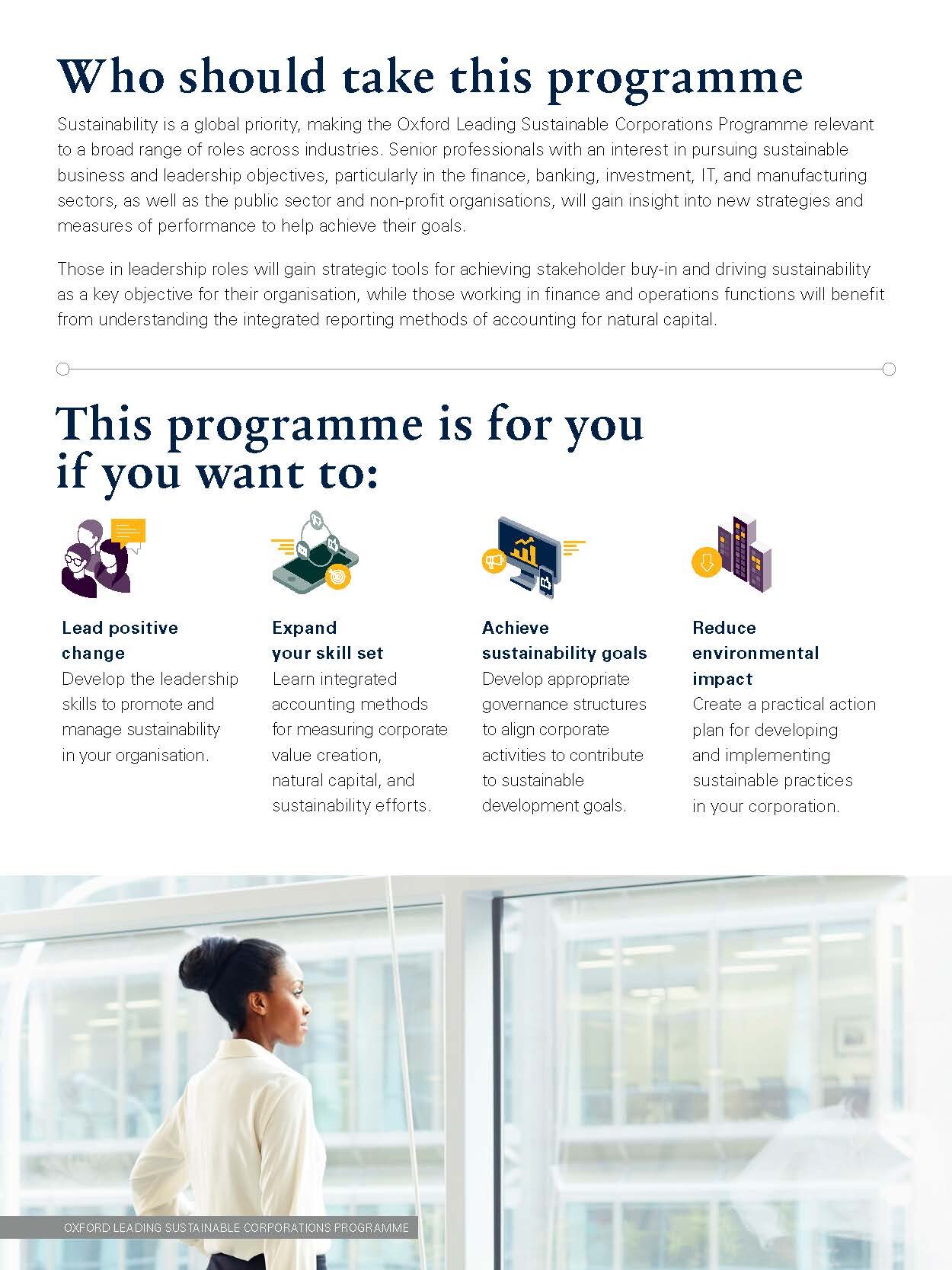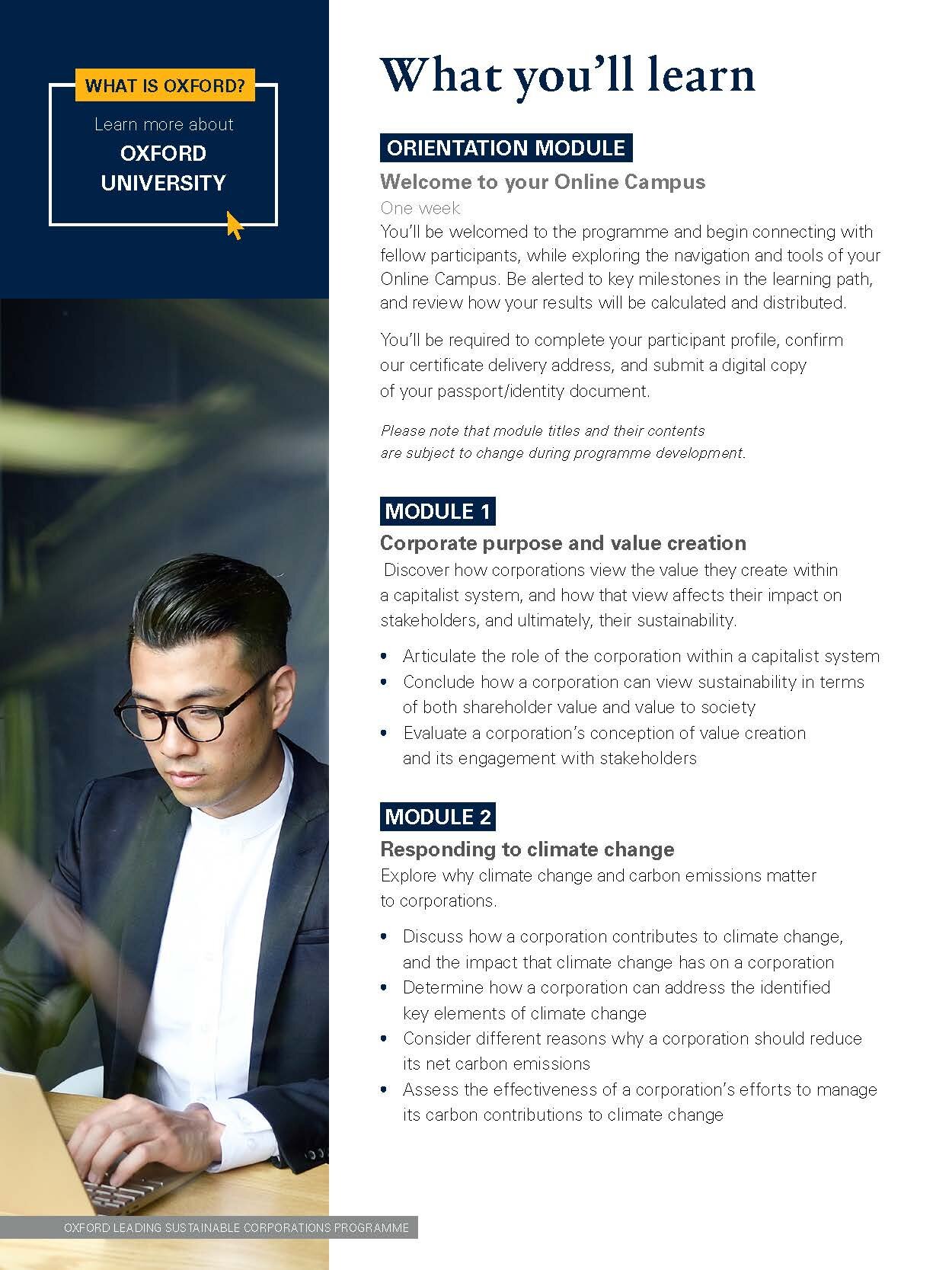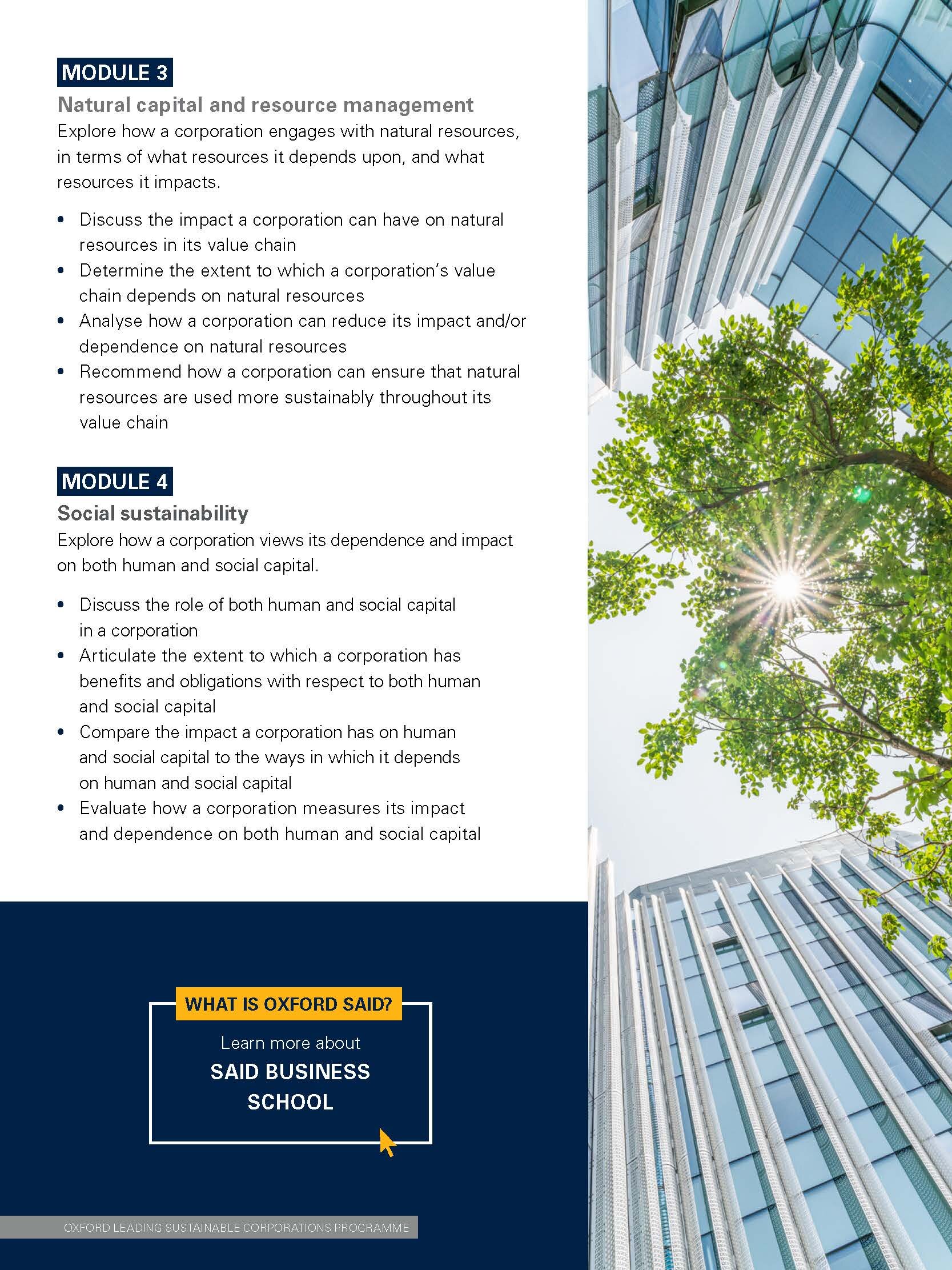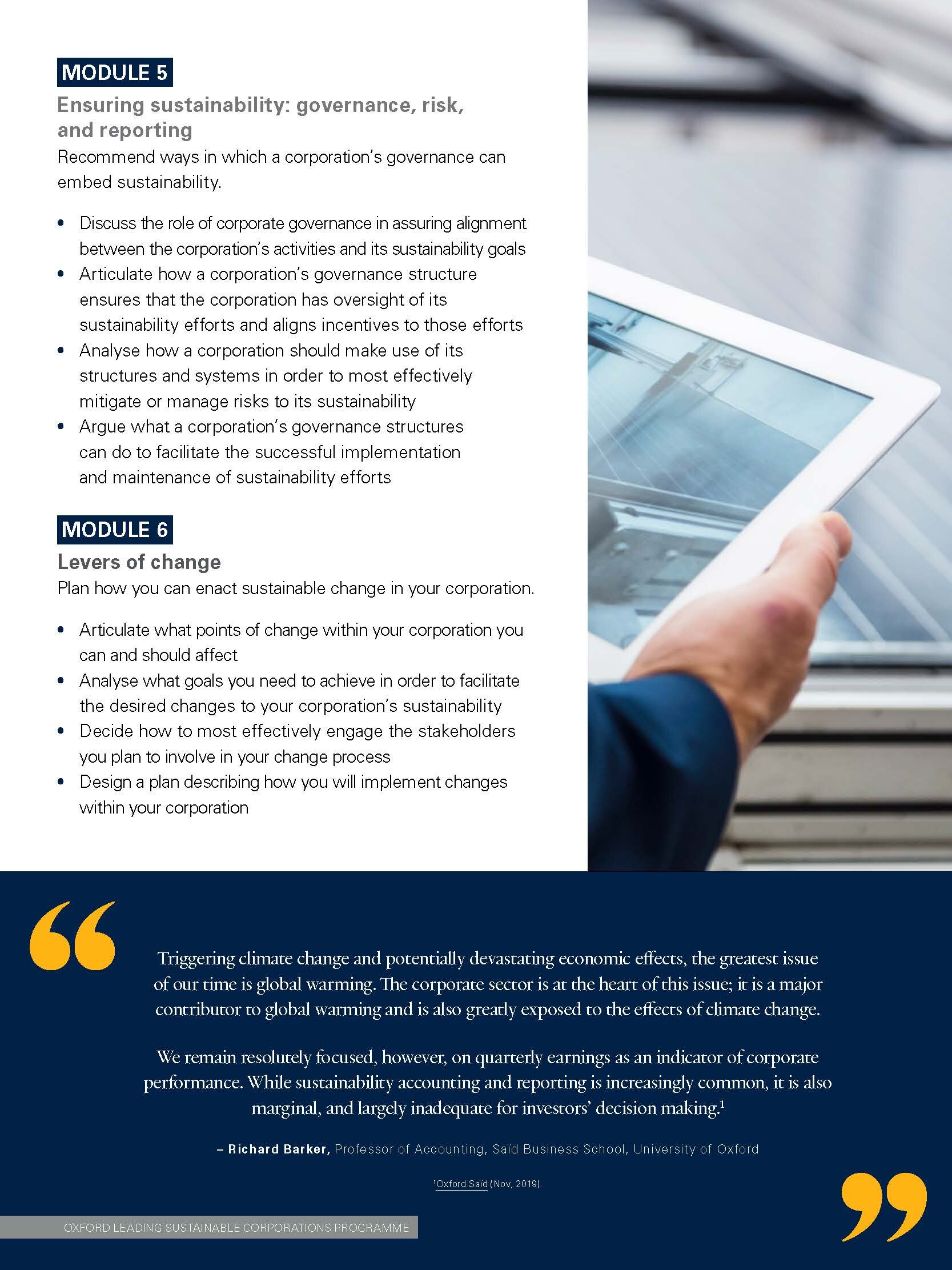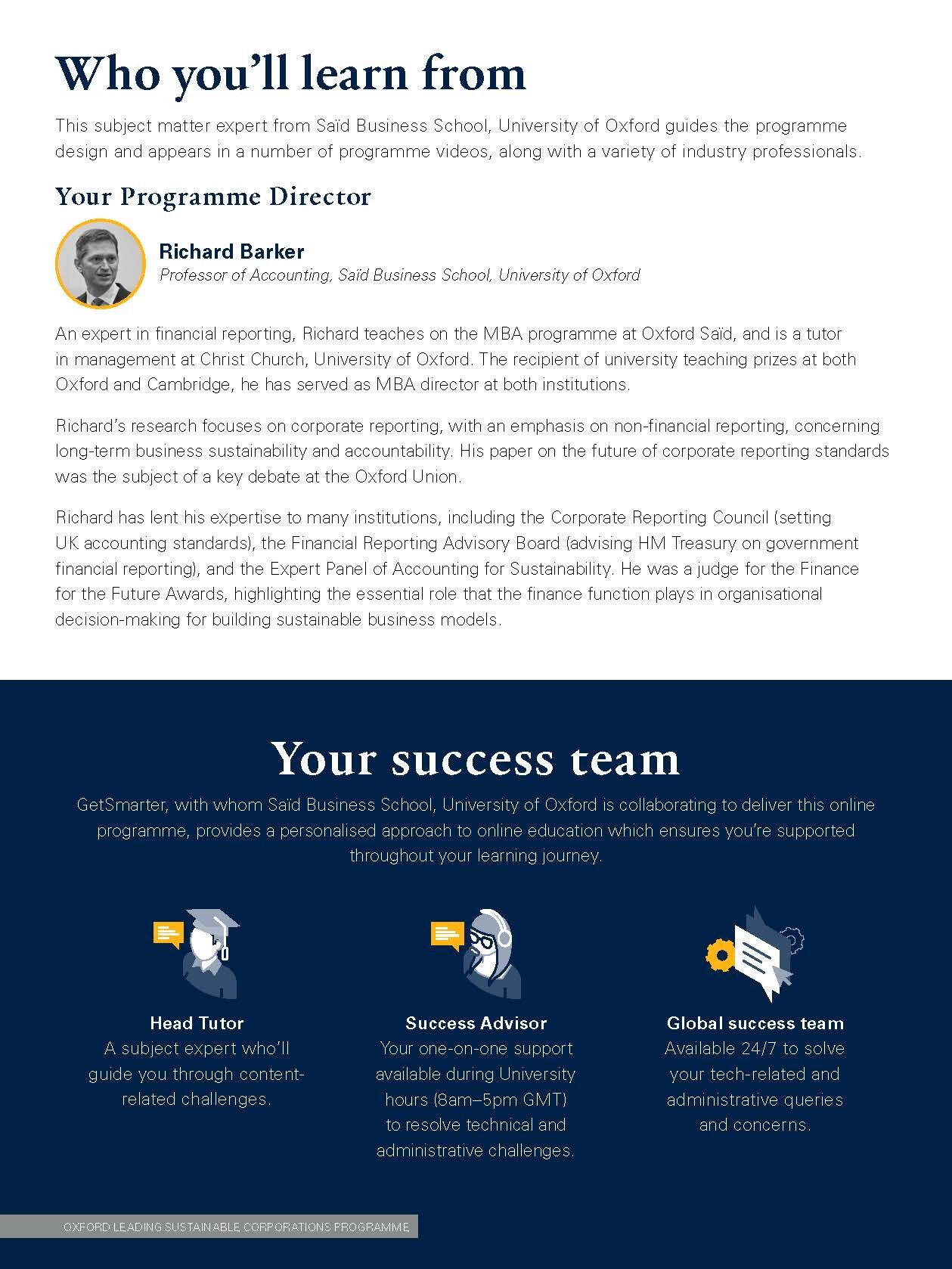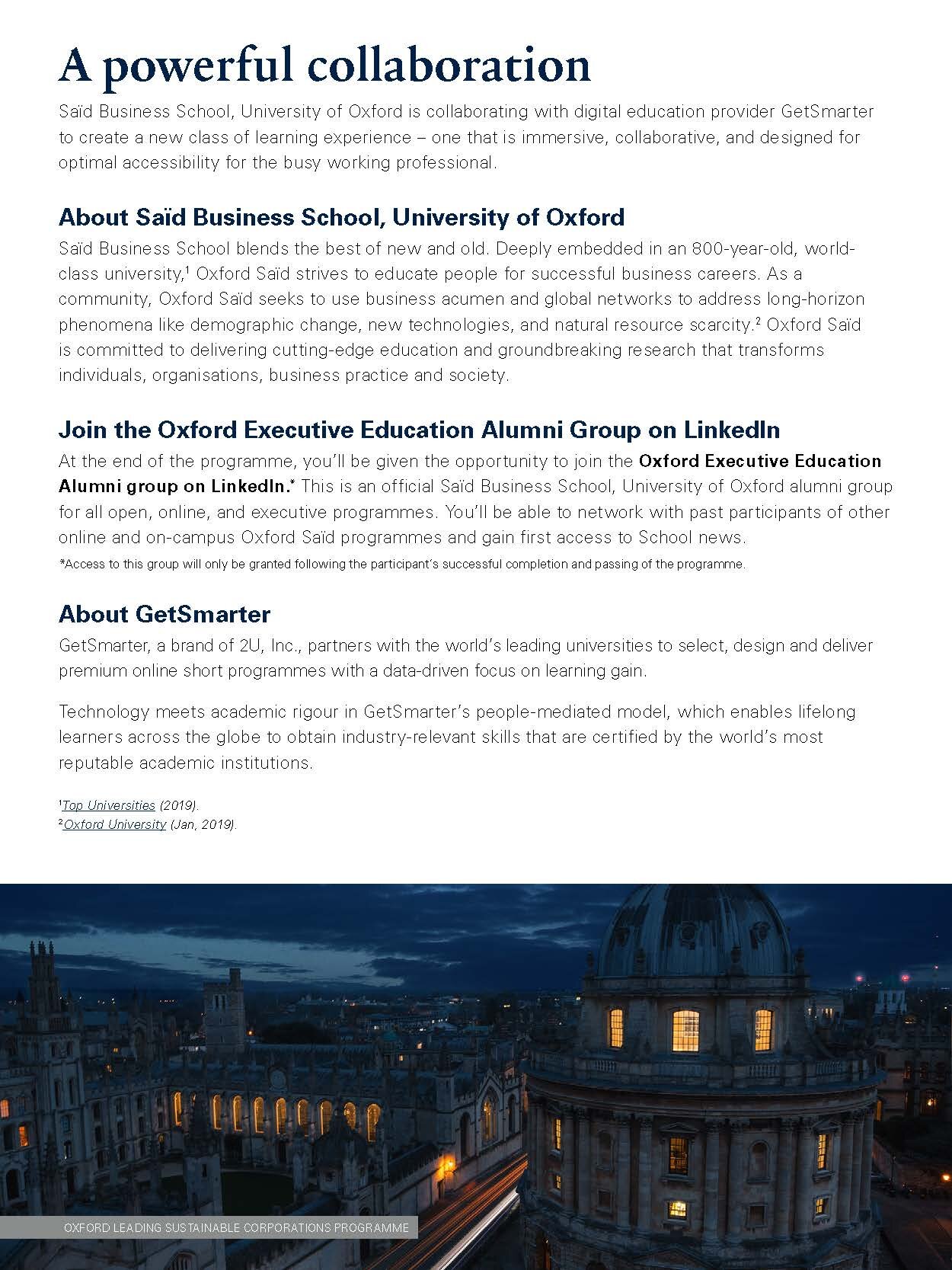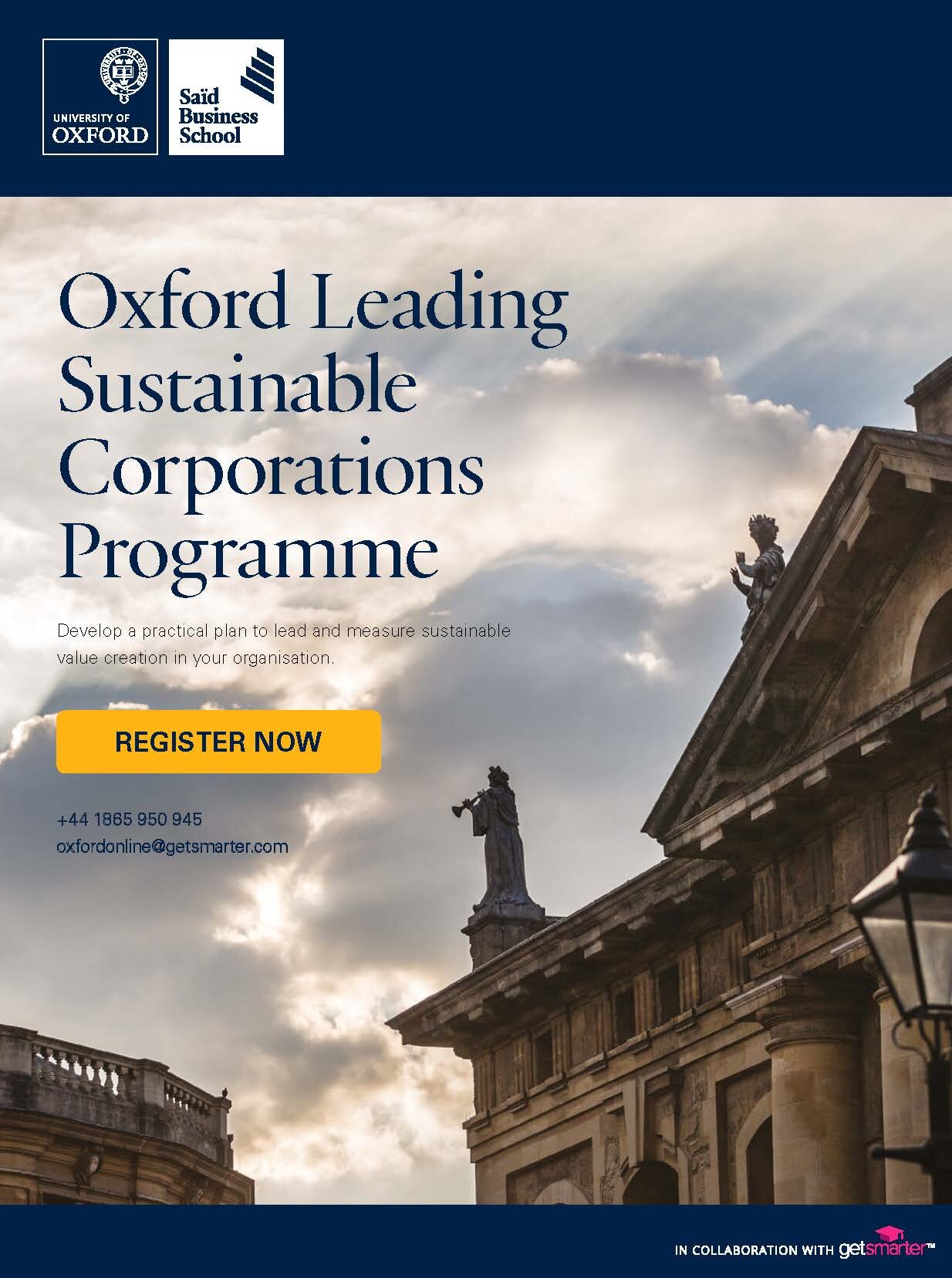What I Learnt about Sustainable Business through Oxford’s Online Programme
/Early on during the pandemic, I would hear people say that we should all have something to show for how we overcame these trying times. So when an advert from the Said Business School at the University of Oxford showed up on my LinkedIn offering an executive education program on sustainability for corporate leaders, I jumped at the chance to dive deep into a topic near and dear to my heart.
[Don’t skip to the end to learn what I see the Buildings Industry will need to address to stay sustainably competitive in the decade ahead.]
What appealed to me about the program was that it was a manageable chunk of time during nights and weekends. I would enjoy my time sharpening skills and learning something new that maybe I could bring back to my work as Clark Construction’s Director of Sustainability.
It was pretty fun going to a virtual extension of this most famous university. And part of what sold me on the education program was imagining myself going back to school at the world’s oldest university in the English-speaking world. So to me, if a 925-year-old institution had weathered change before and endured, I figured they’d be the best place to learn the baseline and vanguard knowledge of what it takes to lead in a sustainable company.
The Oxford Leading Sustainable Corporations Programme (OXFLSC) took us beyond the traditional concepts of measuring business performance, introducing new methods for recognizing corporate value and reporting sustainable practices. Through a series of video-recorded interviews and discussions, along with a very engaging community of about 120 students worldwide, it was a digitally immersive way to develop the skills needed to drive and measure our corporation’s environmental impact and dependency on natural, social, and human capital. Highlights included lectures from Baroness Shriti Vadera, Chair of British multinational insurer Prudential plc, Paul Polman, former CEO of Unilever, and the deeply insightful lectures from program chair Richard Barker, Professor of Accounting at Saïd Business School, Oxford University, Rafael Ramirez, Professor of Practice & Director, Oxford Scenarios Programme @ Oxford University, and Colin Mayer, the Peter Moores Professor of Management Studies at the Saïd Business School at the University of Oxford.
A broad range of industries are confronted with risks and opportunities related to climate change, so the program presents the concept and practice of #sustainability as a global priority. The program’s masterstroke granted us access to expert insights and leading research from across the University of Oxford, enabling us to develop a practical action plan to promote meaningful sustainability strategies in our organizations.
The program helped me to reflect on my career and sharpen my outlook on Corporate Sustainability in transformative and compelling ways. As a former military mechanic and commercial architect, and now working at one of the nation's top green builders with annual revenues of $6 billion, I’ve developed expertise with how sustainability practice can create shared value across priorities that impact people, the planet, and profit for the buildings industry, including architecture, construction, and facilities management at a local, national, and global scale.
I believe that economic cycles teach us about the strengths and weaknesses of our buildings industry. Therefore, corporate sustainability practice can enhance value creation for companies as a framework to evaluate, change, and sustain a thriving heavy industry sector like construction.
After graduating from the OXFLSC program, I've identified three key areas to develop capacity and capabilities to ensure that the buildings industry can remain progressively competitive:
Workforce Development: enhancing current apprenticeship and small business incubator programs to address clean-tech, energy efficiency, and decarbonization strategies will be key to adapting to established and emerging regulations in the U.S. and abroad with green jobs mandates.
Net-zero Carbon: designing and delivering net-zero construction materials while also reducing operating emissions during construction will be key to cost-saving measures that enhance differentiation and competitiveness with most globally-minded clients and institutions.
Diversity and Inclusion: creating pathways for corporate and operations people cultures to demonstrate their various value propositions through “green building” quality execution that meaningfully contributes to the company’s bottom line will be key to attracting and retaining top talent that can reliably utilize the technology innovations ahead.
Find out if the Oxford Leading Sustainable Corporations Programme is right for you and access the main page for all information, including the prospectus below:






